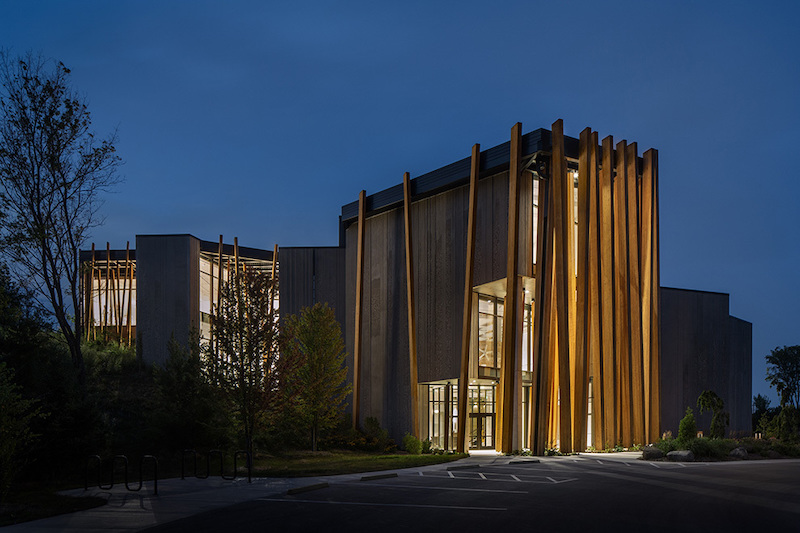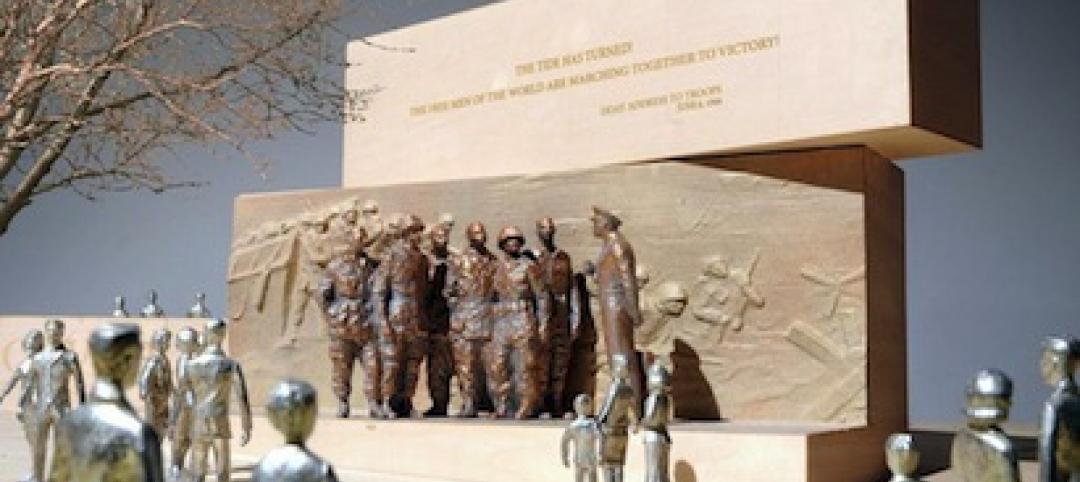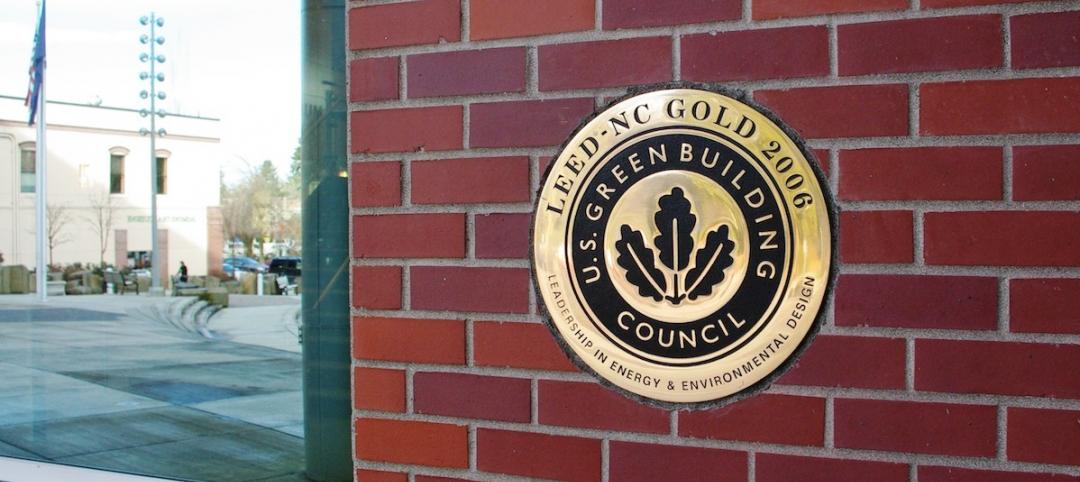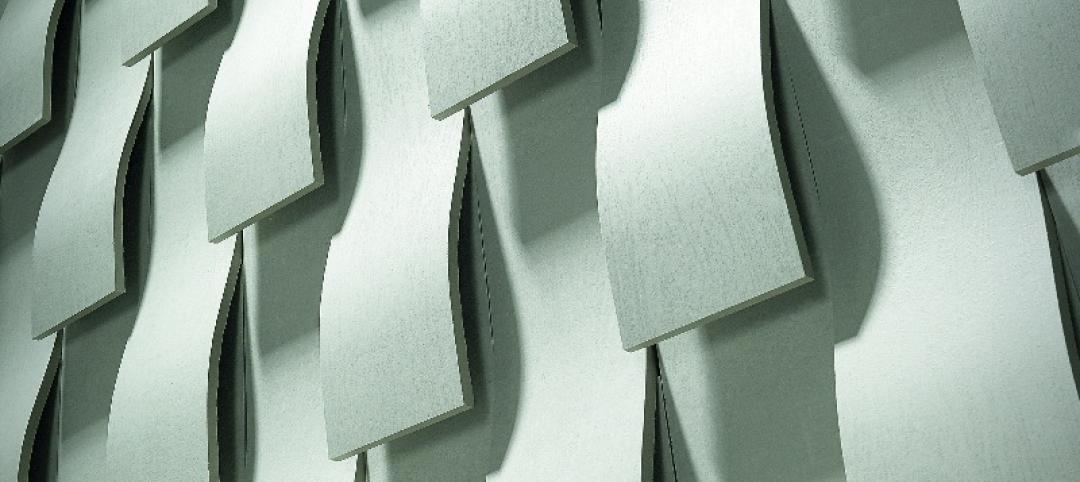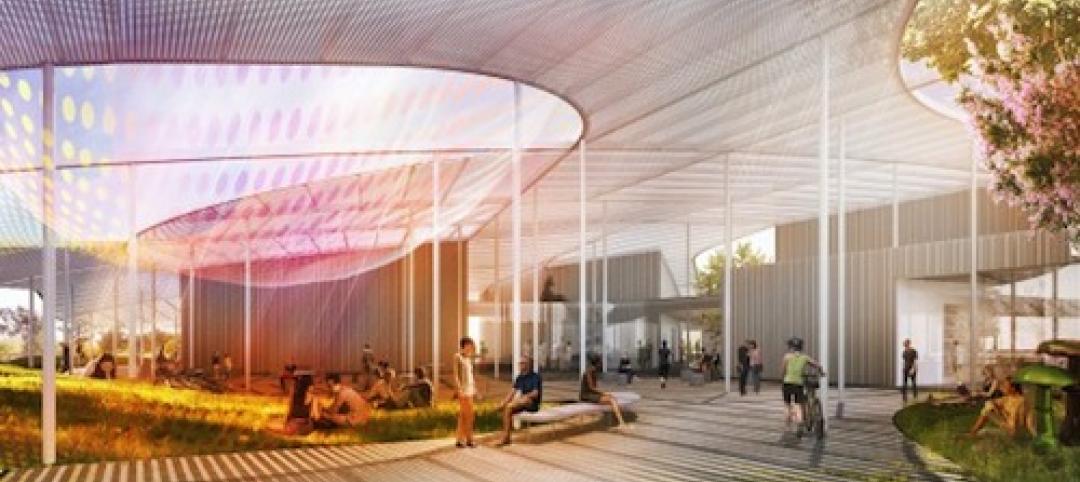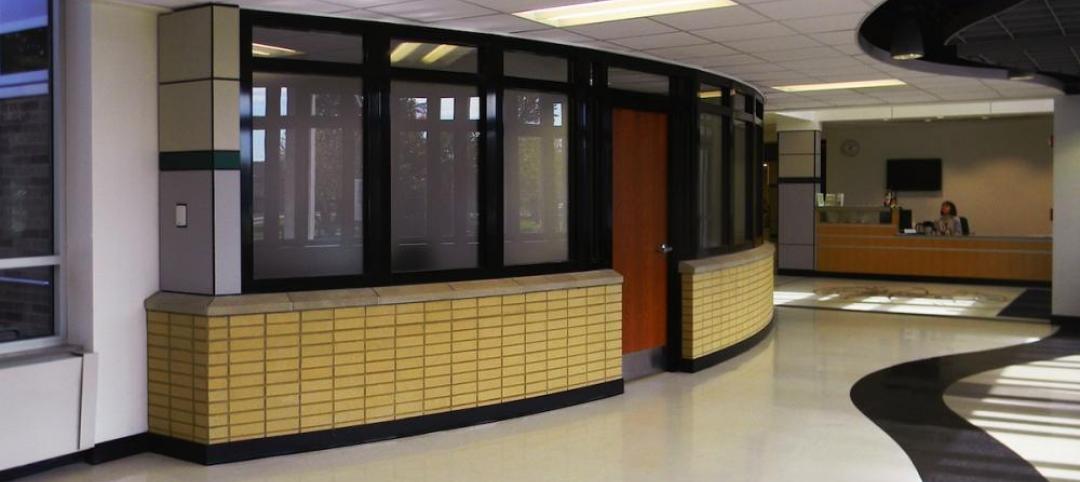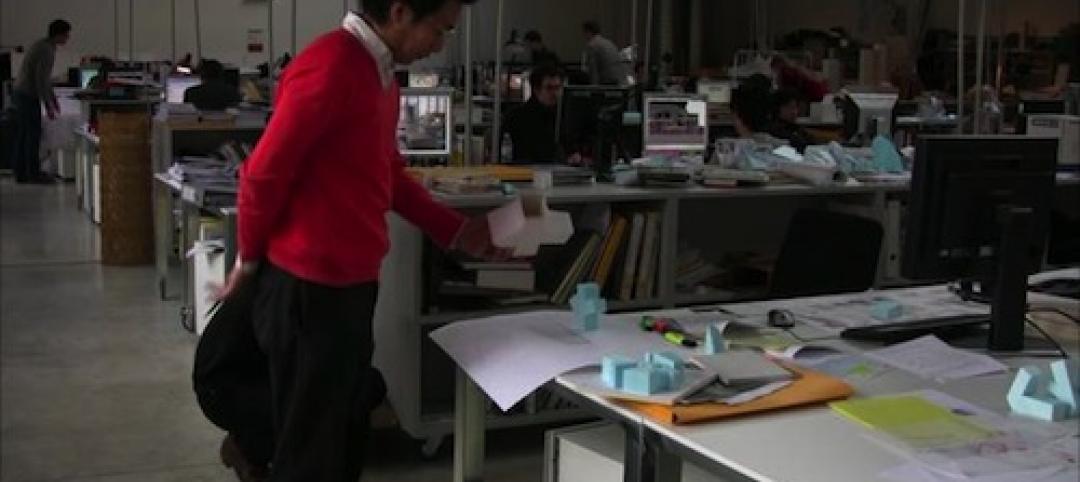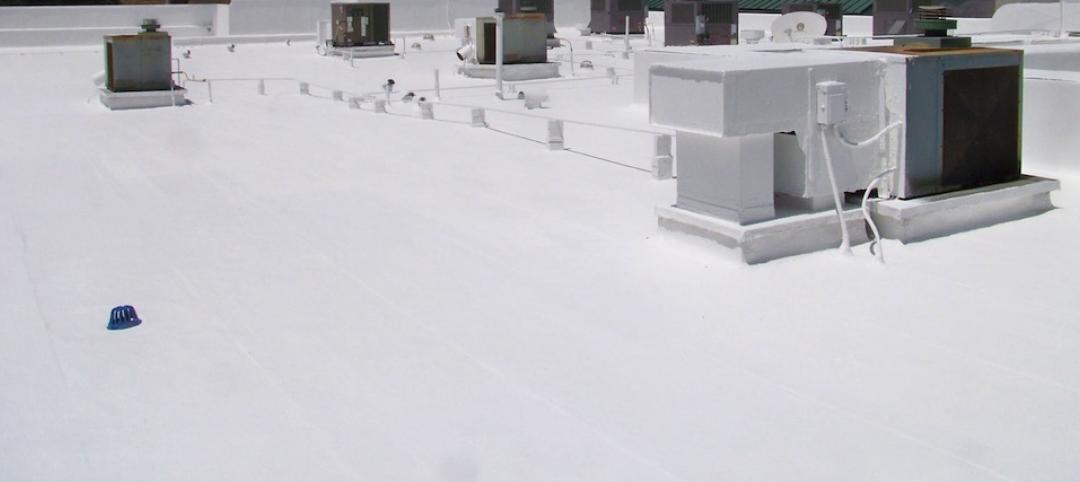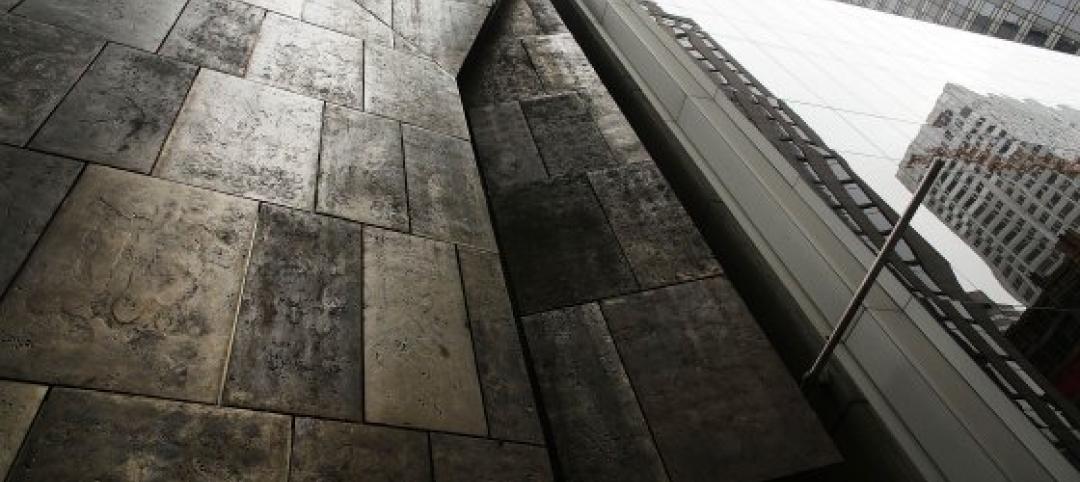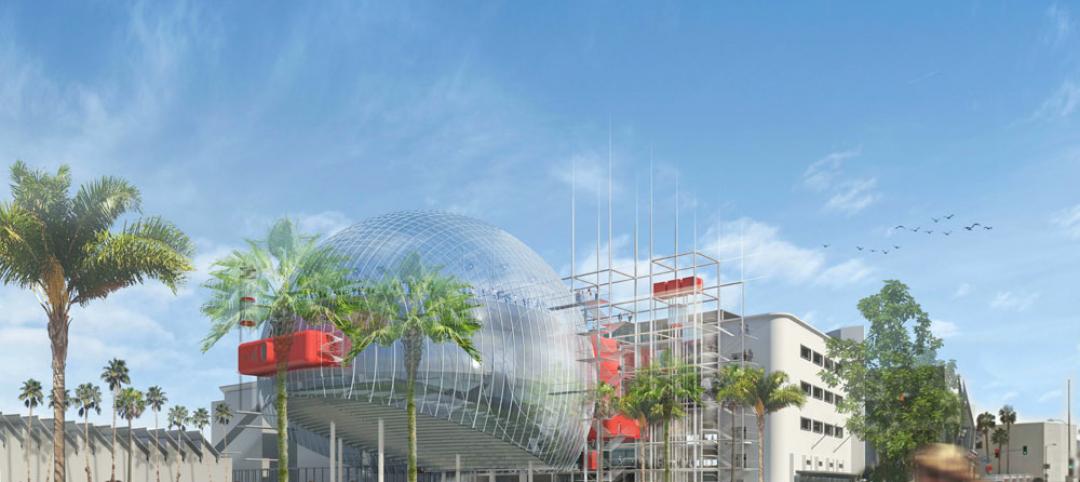The Art Preserve of the John Michael Kohler Arts Center, a 50,000-sf, three-story building in Sheboygan, Wisc., will be the world’s first museum dedicated to artist-built environments. Artist-built environments are an art form created by people who transform their homes and yards into multifaceted works of art.
The Art Preserve is located within the natural setting of a 160 acre nature preserve on Sheboygan’s west side. The building will provide exhibition space, visible storage, and preservation of more than 35,000 works of art by over 30 artists. Also included are an education area, a library, a study collection, and other spaces that will provide access to the collection for researchers, tour groups, and the public. Exhibition spaces will present artists’ work in a variety of ways with the goal to be as true to the artists and show as much of the collection a possible.
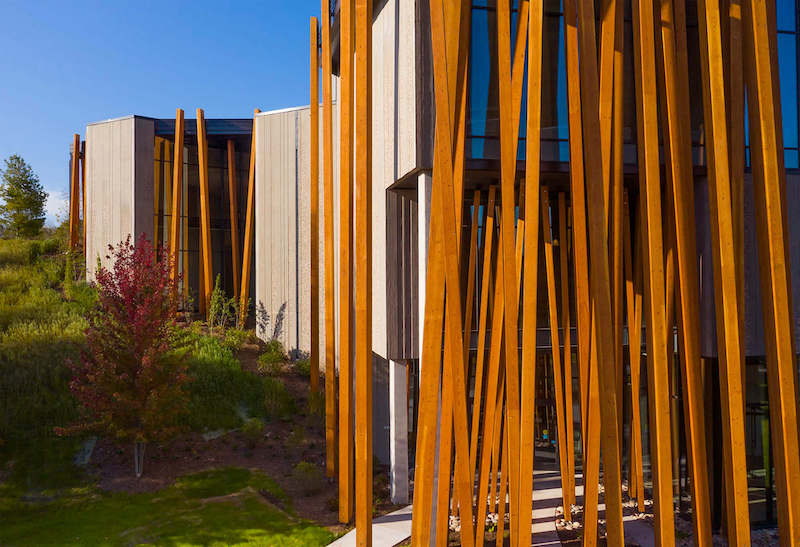
With a design that embraces the collection’s connection to nature while balancing the need to preserve the work, the building is constructed out of materials prevalent on the site such as rocks, sticks, and earth. The concrete structure is comprised primarily of regional river rock, providing the space with a large thermal mass to balance interior temperatures. The asymmetric shape of the building climbs the hillside and connects the lower entry meadow to the upper secret meadow by bridging the wooded hillside.
Embedding the building in the hillside helps it to maintain a constant temperature, moderating the heating and cooling load of the building. It also helps in creating a different feel for each of the floors as the visitor makes their way up and down the structure. Level 1 feels of the earth with its heavy river rock walls whereas level 3 opens to the sky, has views out to the tree canopies beyond, and allows access to the upper meadows of the site.
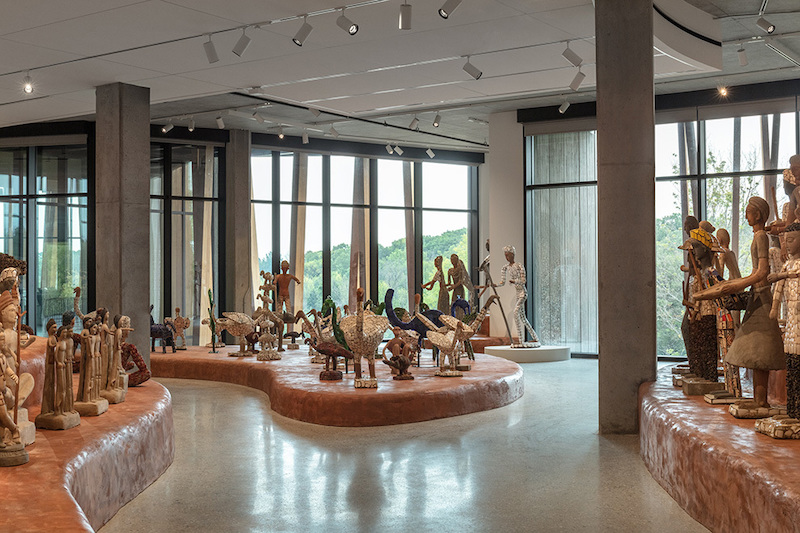
Visitors enter the main entry through a forest of timbers that serve three purposes: they assist with solar shading of the museum’s largest southern windows, they echo the hillside trees in rhythm and stance, and they create a procession through the woods into the museum.
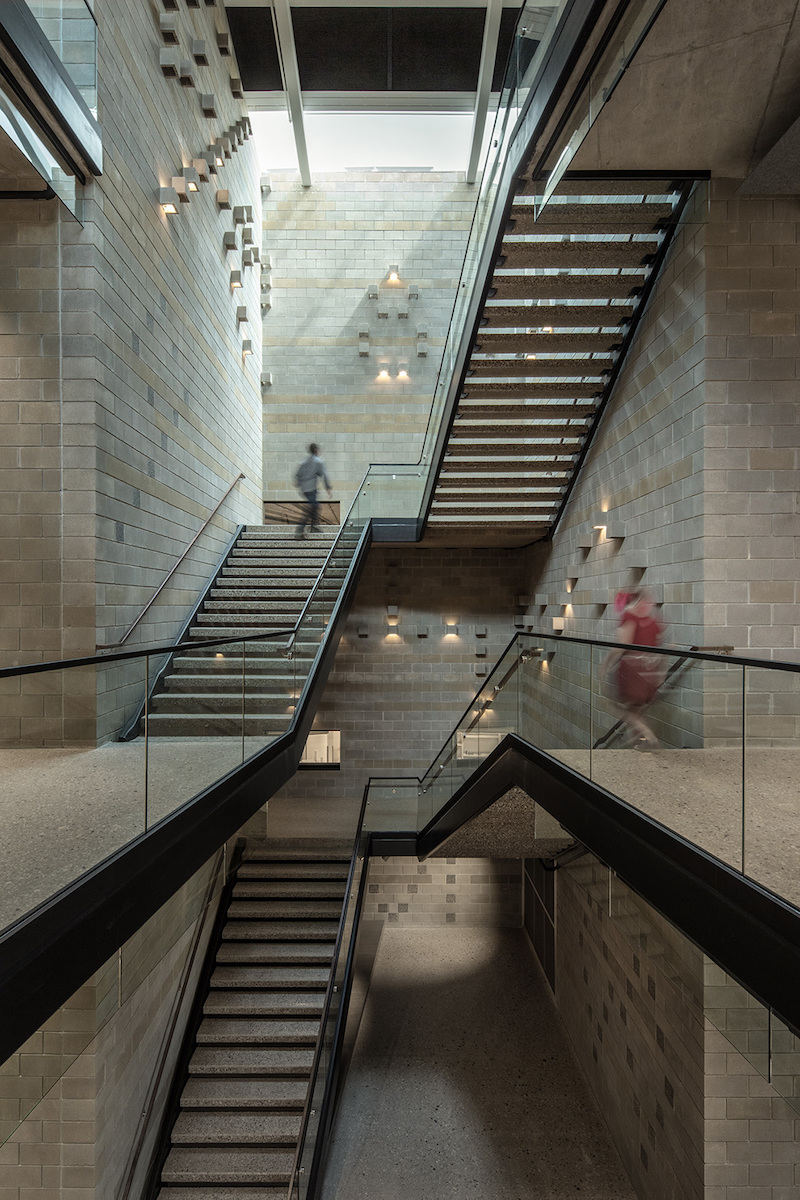
Arup collaborated with Tres Birds to design optimal environments for art preservation while keeping sustainability and patron experience in mind. These environments include:
• A lighting scheme with motion-sensing LEDs designed to protect artwork, save energy, and make the space more inviting for patrons
• Sound absorbing treatments to enhance acoustic experience and mitigate noise, especially during lively hours or docent tours
• Tightly controlled environment for air quality to prevent mold or corrosion and preserve the artworks
• High-performing building envelope, including careful window placement and a sunken northern façade, as well as energy efficient mechanical systems to endure the cold Wisconsin winters while conserving energy.
The museum opened to the public on June 26.
Related Stories
| Jun 25, 2013
DC commission approves Gehry's redesign for Eisenhower memorial
Frank Gehry's updated for a new Dwight D. Eisenhower memorial in Washington, D.C., has been approved by the Eisenhower Memorial Commission, reports the Washington Post. The commission voted unanimously to approve the $110 million project, which has been gestating for 14 years.
| Jun 5, 2013
USGBC: Free LEED certification for projects in new markets
In an effort to accelerate sustainable development around the world, the U.S. Green Building Council is offering free LEED certification to the first projects to certify in the 112 countries where LEED has yet to take root.
| Jun 3, 2013
Construction spending inches upward in April
The U.S. Census Bureau of the Department of Commerce announced today that construction spending during April 2013 was estimated at a seasonally adjusted annual rate of $860.8 billion, 0.4 percent above the revised March estimate of $857.7 billion.
| May 21, 2013
7 tile trends for 2013: Touch-sensitive glazes, metallic tones among top styles
Tile of Spain consultant and ceramic tile expert Ryan Fasan presented his "What's Trending in Tile" roundup at the Coverings 2013 show in Atlanta earlier this month. Here's an overview of Fasan's emerging tile trends for 2013.
| May 2, 2013
First look: UC-Davis art museum by SO-IL and Bohlin Cywinski Jackson
The University of California, Davis has selected emerging New York-based practice SO-IL to design a new campus’ art museum, which is envisioned to be a “regional center of experimentation, participation and learning.”
| Apr 30, 2013
Tips for designing with fire rated glass - AIA/CES course
Kate Steel of Steel Consulting Services offers tips and advice for choosing the correct code-compliant glazing product for every fire-rated application. This BD+C University class is worth 1.0 AIA LU/HSW.
| Apr 26, 2013
Documentary shows 'starchitects' competing for museum project
"The Competition," a new documentary produced by Angel Borrego Cuberto of Madrid, focuses on the efforts of five 'starchitects' to capture the design contract for the new National Museum of Art of Andorra: a small country in the Pyrenees between Spain and France.
| Apr 24, 2013
Los Angeles may add cool roofs to its building code
Los Angeles Mayor Antonio Villaraigosa wants cool roofs added to the city’s building code. He is also asking the Department of Water and Power (LADWP) to create incentives that make it financially attractive for homeowners to install cool roofs.
| Apr 23, 2013
Architects to MoMA: Don't destroy Williams/Tsien project
Richard Meier, Thom Mayne, Steven Holl, Hugh Hardy and Robert A.M. Stern are among the prominent architects who on Monday called for the Museum of Modern Art to reconsider its decision to demolish the former home of the American Folk Art Museum.
| Apr 17, 2013
First look: Renzo Piano's glass-domed motion pictures museum
The Academy of Motion Picture Arts and Sciences last week released preliminary plans for its $300 million Academy of Motion Picture Arts and Sciences museum in Los Angeles, designed by Renzo Piano and local architect Zoltan Pali.


